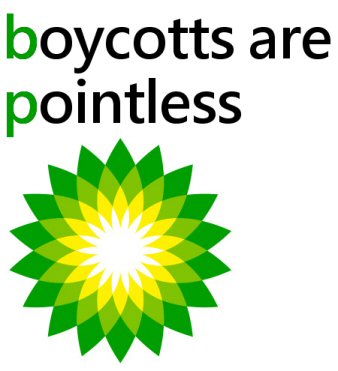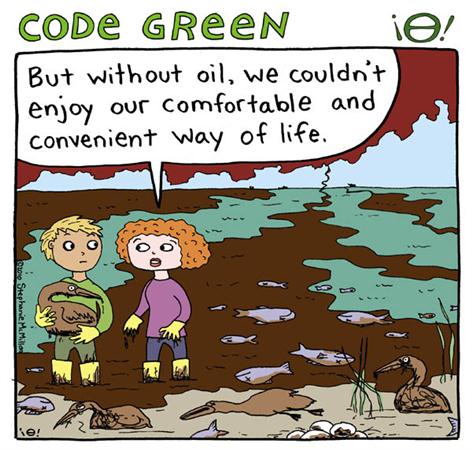Boycotting BP Is Like Choosing Your Least Favourite Genocide
Posted by keith on July 2nd, 2010
Which is your least favourite genocide?
I don’t know about you, but if I lived in Rwanda then the genocide of 1994 that took the lives of a million people in some of the most brutal ways imaginable would certainly be at the top (or is that bottom) of my list. Then again, anyone who follows the Jewish faith or, indeed, lived through World War II, would have no hesitation in selecting the Holocaust as their least favourite genocide. Then there is the “lost” genocide of Armenia, which modern day Turkey still refuses to acknowledge – certainly not popular in the Caucasus.
I think it’s probably time to stop, don’t you?
Way back in the prime of my naiveté I played a significant part in the Stop Esso campaign in my part of Britain. Also known in the USA as “Stop ExxonMobil”, the Greenpeace-led campaign was inspired by the fact that the then-President of ExxonMobil, Lee Raymond, refused to acknowledge the human element in global warming. Thus, it was reasoned that ExxonMobil / Esso was the “bad boy” of the oil industry and must be suitably chastised.
For about 5 years I, and thousands of fellow campaigners, were tied up in the myth that somehow boycotting and protesting against a single huge oil company would actually make a difference. This was wrong on three counts:
1) Not a single non-political boycott has ever been shown to have a significant impact on the activities of a large corporation. Aside from political trade sanctions or embargoes, the profit margins and sheer scale of these companies are large enough to absorb the impact of such activities. Campaigns that call for boycotts are even less likely to achieve any satisfactory outcome, simply because only a small minority of people ever heed such calls.
2) The aims of the boycotts are, almost without exception, about getting an existing corporation to change its ways. Now in the case of an oil company, what exactly is it that the company is expected to do? Stop selling oil? I’m no financial expert, but this sounds to me like requesting the company effectively ceases trading, which is certainly not what the vast majority of campaigns aim to do. The campaign line ends with accepting a moral compromise which, as anyone who has studied ethics will attest to, is a morally unstable position at best.
3) Single company boycotts are, in effect, condoning the activities of other companies in the same business. I’ll give you an example: when I organised a serial protest of 45 Esso service stations in one day, those taking part in the protests encountered lots of resistance even to such minor demands as getting an oil company to admit to anthropogenic global warming; but more than that, we also encountered a number of very well informed people, one of whom had experienced at first hand the brutal treatment of Nigerians in the Niger Delta by Shell sponsored thugs, and the appalling conditions suffered by people due to the constant flaring of gas and pollution of watercourses. We were asked why we weren’t protesting against Shell, to which the best we could muster was: “That’s not the focus of today’s campaign.” That may have been the case, but by making a single oil company (Esso) out to be the bad boy, as far as the public were concerned, any other oil company was ok.
You may take part in your single company protest, confident that in your heart of hearts you also despise any other company that operates in a similar manner; but unless you make that explicit, or widen your target to include the entire operational gamut, then you are also publicly giving the other companies the green light, in more senses than one.






